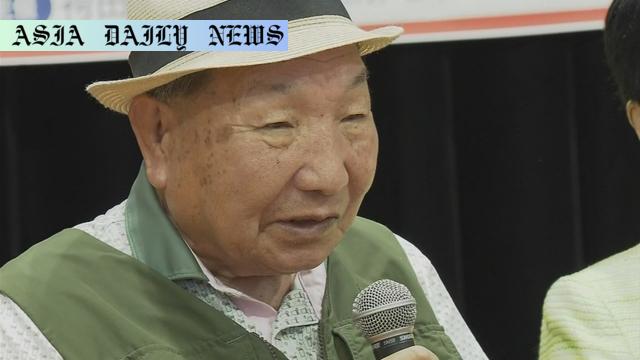Hakamada’s defense team to sue over Prosecutor-General’s defamation.
Hakamada Iwao’s defense team plans to sue for state compensation.
Prosecutor-General’s remark deemed defamatory towards Hakamada.
The legal move follows Hakamada’s acquittal after nearly 60 years.

Introduction
The case of Hakamada Iwao has taken yet another legal turn as his defense team prepares to sue for state compensation in response to remarks made by Japan’s Prosecutor-General, Unemoto Naomi. Hakamada, an 88-year-old former professional boxer, was acquitted last year after enduring decades in legal limbo over his conviction for multiple murders in Shizuoka Prefecture 59 years ago. The Prosecutor-General’s statement, which deemed the acquittal ruling flawed and “totally unacceptable,” has sparked allegations of defamation and disrespect towards Hakamada, who has already endured a lifetime of legal and emotional hardship. The defense team contends that this remark directly contradicts his acquittal, unfairly labeling him as a perpetrator despite clear evidence of his innocence.
Background of the Case
In one of Japan’s most notorious legal cases, Hakamada was convicted in the 1960s for the murders of four individuals, a crime he consistently denied committing. Despite mounting evidence of coerced confessions and unreliable forensic techniques, he spent more than five decades on death row. His prolonged imprisonment and eventual acquittal last year brought international attention to flaws in Japan’s judicial system, particularly its handling of wrongful convictions and reliance on confessions.
The Controversial Statement
The conflict at the center of this latest legal move lies in a statement made by Unemoto Naomi, the head of Japan’s Public Prosecutors Office. Following Hakamada’s acquittal, Unemoto criticized the ruling as “totally unacceptable,” suggesting there were significant issues with the decision. While prosecutors in Shizuoka refrained from appealing the ruling to a higher court, Unemoto’s remarks cast a shadow over Hakamada’s hard-won exoneration. The defense team argues that such a statement not only undermines the court’s decision but also publicly defames Hakamada by implying he remains guilty.
Legal Grounds for Compensation
Hakamada’s lawyers now seek damages under the premise that the Prosecutor-General’s comments amount to defamation. They argue that the remarks were inappropriate and unjustified, especially from a figure of authority like Unemoto Naomi. These allegations raise critical questions about accountability within Japan’s legal hierarchy and the implications of such statements on individuals who have been vindicated by the judicial system. The defense team has called for an official apology from Unemoto, emphasizing the emotional toll her remarks have inflicted on Hakamada, who has already suffered immeasurably during his decades-long ordeal.
Broader Implications
This case carries far-reaching implications beyond Hakamada’s personal struggle. It highlights systemic issues within Japan’s judicial system, particularly the role of senior prosecutors in shaping public perception of acquittals. Legal experts argue that such rhetoric could discourage the public from trusting court decisions or create undue skepticism toward individuals who have been exonerated. Moreover, it raises broader ethical questions regarding the responsibilities of prosecutors in respecting judicial outcomes and the rights of acquitted individuals.
The Path Forward
As Hakamada’s defense team moves forward with plans to file for state compensation, their actions represent a broader push toward accountability and justice reform. They hope that their efforts will not only vindicate Hakamada but also send a clear message about the importance of respecting judicial outcomes and treating acquitted individuals with dignity. An official apology and acknowledgment of wrongdoing by Unemoto Naomi would signify progress in addressing the systemic flaws that have marred Japan’s legal system for decades.
Conclusion
Hakamada Iwao’s case remains a stark reminder of the human cost of wrongful convictions and the challenges of justice reform. His defense team’s decision to sue for state compensation underscores the need for accountability at all levels of the judicial system. As this legal battle unfolds, it carries the potential to bring further scrutiny and reform to Japan’s treatment of acquitted individuals, offering hope for a more just and equitable legal future.
Commentary
The Role of Accountability in Justice
Hakamada Iwao’s case serves as a stark illustration of the importance of accountability within judicial systems. The statement made by Prosecutor-General Unemoto Naomi, which undermines the legitimacy of an acquittal, raises significant ethical concerns. It highlights how individuals in positions of authority can perpetuate harm, even after a court has deemed a person innocent. For someone like Hakamada, who has already suffered profoundly due to wrongful conviction and decades of imprisonment, such remarks are not only insensitive but unjustifiable.
Impact on Public Trust in Justice
Unemoto’s statement also highlights a broader issue—its potential impact on public perception of the judiciary. By openly criticizing a court ruling, the Prosecutor-General risks eroding public trust in the fairness and finality of judicial decisions. This is particularly problematic in cases involving wrongful convictions, where societal support and trust in the process of justice are critical for both rehabilitation and reform. Such remarks, if left unaddressed, could set a dangerous precedent, casting doubt on the integrity of future acquittals.
The Emotional Toll on Exonerated Individuals
For Hakamada, this controversy represents yet another challenge in his long fight for justice. Having endured decades of psychological and physical hardship on death row, the defamation inherent in Unemoto’s remarks is a cruel blow. It underscores how the stigma of wrongful conviction can persist even after exoneration, compounding the trauma experienced by individuals like Hakamada. An apology and acknowledgment of error by the state would not only validate his struggle but potentially pave the way for other wrongfully convicted individuals to seek redress.
Hope for Systemic Reform
Ultimately, this case serves as a catalyst for broader discussions on justice reform within Japan. It challenges policymakers, legal professionals, and society at large to reevaluate how acquitted individuals are treated and how the judicial system can ensure accountability at every level. Hakamada’s legal fight is about more than compensation—it is a demand for dignity, acknowledgment, and systemic change, offering a glimmer of hope for a more just future.


